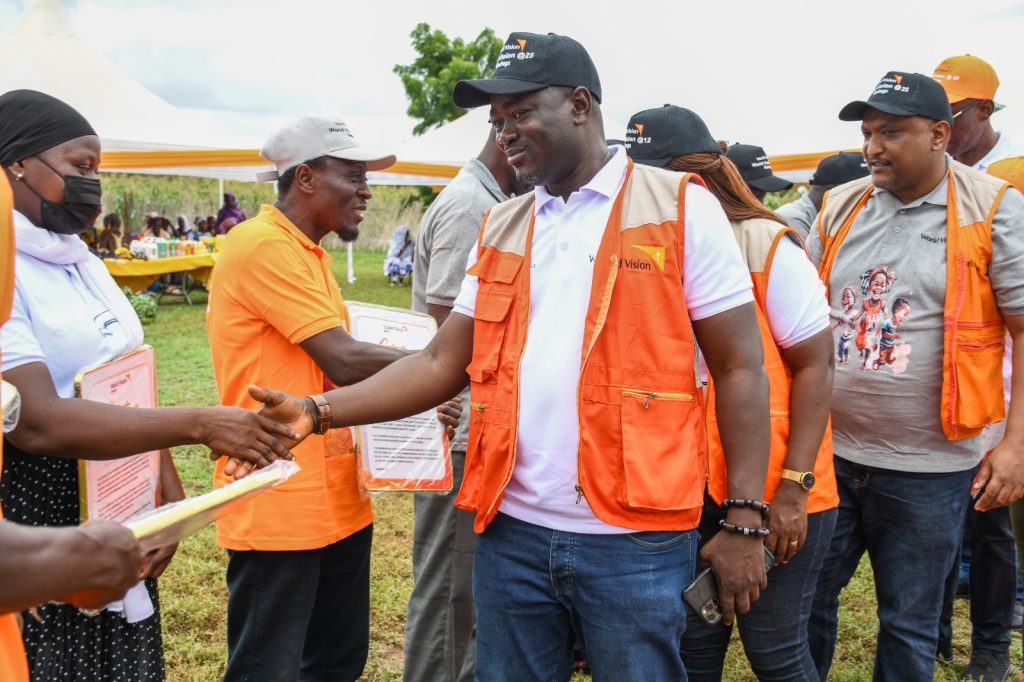By Albert Futukpor
Gushegu (N/R), Aug. 9, GNA – Some residents of Gushegu and Karaga Assemblies have said the interventions undertaken in their Assemblies by World Vision Ghana, a Christian relief, development, and advocacy NGO, has brought relief and transformed their lives.
Whilst some said the interventions had led to improved sanitation practices amongst them as evidenced in open defecation free communities and a drop in water-borne diseases, others said they improved on their livelihoods and incomes enabling them to provide the needs of their families.
They were speaking at a durbar at Gushegu in the Northern Region to mark the end of the Gushegu Cluster (Gushegu and Karaga) Area Programme of World Vision.
The durbar was attended by various stakeholders drawn from the Gushegu Cluster Area Programme, including beneficiaries, traditional authorities, heads of department among others.
World Vision began the Gushegu Cluster Area Programme in 2011 when the area was among the most deprived districts in the region, there were challenges of food insecurity, lack of available wholesome water, and poor school enrolment levels, among others.
World Vision Ghana, within the period, implemented interventions including Livelihood Improvement and Empowerment project, Water, Sanitation and Hygiene, Child Protection among others, which were tailored to addressing those challenges to contribute to improve and sustain conditions of life for all vulnerable girls and boys and their families.
World Vision Ghana, during the period, invested an amount of $8.72 million into the interventions to support vulnerable children and communities in the Gushegu Municipality whilst children and adults in the 35 communities of Karaga District equally benefitted from $3.9million of investments into interventions, which had greatly contributed to their holistic transformation.
The interventions contributed to providing potable water for over 298,975 people in the Gushegu and Karaga Districts whilst 248 schools in the area were provided with improved sanitation facilities and 146 Water and Sanitation Management Teams were trained on the maintenance of the facilities to sustain them.

Two dry season vegetable production sites were also established at Kpatinga in Gushegu Municipality and Sung in Karaga District ensuring that over 3,789 households annually received fresh vegetables to improve their nutritional status whilst the farmer groups managing the sites with a population of 100 women and men make not less than GHc1,875 annually from the sales made on their farms.
Madam Suweiba Abukari, a beneficiary of the interventions, said she benefited from the Village Savings and Loans Association’s intervention at Karaga where she took a loan to start petty trading and later expanded it to a shop, which helped her to raise resources to finance her child’s education to complete tertiary education.
Mr Osman Abukari, a beneficiary from the Gushegu Municipality, said water-borne diseases were no longer common in the area because of improved sanitation practices and access to potable water, adding it had improved his conditions of living.
Master Ziblim Tanko from Karaga said he benefited from the child sponsorship programme, which enabled him to access formal education whilst saving some of the resources, to embark on rearing of animals to generate income to take care of other needs.
Mr Dawuni Robert Yaja, Gushegu Municipal Chief Executive, said the interventions implemented in the Gushegu Municipality had brought a significant transformation to the lives of children, women, vulnerable groups, and communities in the area.
Mr Iddrisu Mohammed Saani, Karaga District Chief Executive, expressed gratitude to World Vision Ghana for complementing the efforts of the Assembly to deliver public goods to the people.
Mr Joshua Baidoo, Integrated Programmes Director at World Vision Ghana, said, “World Vision has been operating in the Northern Region for the past 25 years. During this period, the Gushegu and Karaga Area Programmes opened. Although we are ending our sponsorship interventions in both Gushegu and Karaga, there are still other projects currently ongoing.”
He said, “The E-WASH project will continue to address water and sanitation issues while the Vision Fund project will continue to provide financial and insurance services to beneficiaries of the savings groups. This shows that we are still with you.”
Meanwhile, World Vision Ghana presented citations to volunteers and key partners in the area for their contribution to the success of its interventions.
GNA